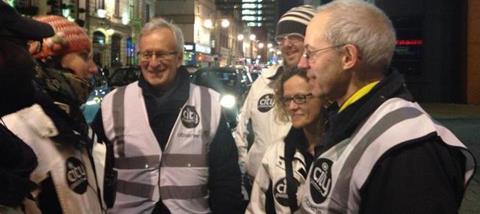
Jesus came and transformed people in heart and deed – his evangelism and social action were intertwined and inseparable. But why do we so often see a break between theology and practice, the sacred and the secular, personal piety and socio-ecological justice in the life and teaching of the Church today? Why have these inseparable matters been set apart?
There are far more factors involved than we can possibly consider in full detail here, but I will identify the three main factors that I believe have split apart what never should have been separated..
1. Enlightenment Rationalism
Although both Jewish thought and the Palestinian beginnings of Christianity were cast in an Eastern, holistic framework, the early Church in the Roman Empire very soon had to find its way within the matrix of Greek philosophy. Platonic dualism affirmed the superiority of mind over matter, which was understood as merely a shadow of pure ideas. Centuries later, the Enlightenment followed suit, placing utmost value on reason and its abstract capacities. Recent ‘modernity’ enshrined knowledge as the core of existence and affirmed the enlightened scientist as the priest that would guide society into better forms of life. Dominant Western religion often lost its vocation as it fell hostage to this human-bound and secularizing ideology.
In the West, theology often became fossilized into a set of philosophical constructs, sterile doctrines and propositional truths held by erudite people and dispensed in pre-packaged form to the rest. Western theologians have often constructed systematic formulations that have little bearing on the every-day lives of the church and the world.
2. The allegiance of Christianity to power
Christianity has often been wedded to the power of the day, be it the ‘Holy’ Roman Empire, the reign of the Catholic royalty in Spain, the ‘civilizing’ British Empire, the ‘democratizing’ US expansion, or ‘Christian’ governments in the Third World. This uncritical allegiance silences the Church’s prophetic capacity and leads to a privatization of faith. It restricts it to intra-church matters, rites and ‘religious’ affairs and leaving the rest of life, the public, social, political and economic realms untouched by Christian ethical values.
3. The Great Reversal
This is a phenomenon I will explain in relation to its impact in Latin America. The 19th century precursors of current protestant/evangelical presence in Latin America, many of them actually from England and Scotland, modelled an integrated missiology that brought together Bible promotion, Bible translation and Bible teaching with public education and involvement in the public arena.
However, early in the 20th century, precisely at the time of the greatest missionary expansion from the West to the rest of the world, American evangelicals ‘took a holiday from history’ – according to Bryant Myers. Although during previous centuries Christians had spearheaded social movements in favour of the poor and against the abuses of power, such as the institution of slavery, this era saw what Moberg terms ‘The great reversal’. In reaction to what they viewed as a selling out of faith to modern thought and a liberal reduction of the gospel to social matters, evangelicals in the North retreated into the ‘fundamentals’ of faith and adopted a reactionary stance.
For many, the focus became saving souls from a depraved, godless society and awaiting the coming eschaton. It was precisely this brand of Western dualist, socially unengaged and other-worldly-looking Christianity that spread out with force around the world and especially in Latin America, the ‘backyard’ of the powerful United States.
Thankfully, matters did not end there, and there are followers of Jesus in Latin America and beyond who are seeking to live out his ‘integral mission’, and nourishing a faith that influences the whole of life.
Jesus told his followers that he had come to bring them fullness of life: ‘I have come that they may have life, and have it to the full’ (John 10:10). You and I are called to share the message of Christ with others in word and deed, offering them fullness of life both here on earth, and in the world to come.
This series of articles is a summary of talks given to the Keswick Convention 2014. The audio of the talk is available free on www.keswickministries.org
To receive a free copy of Premier Christianity magazine click here



























